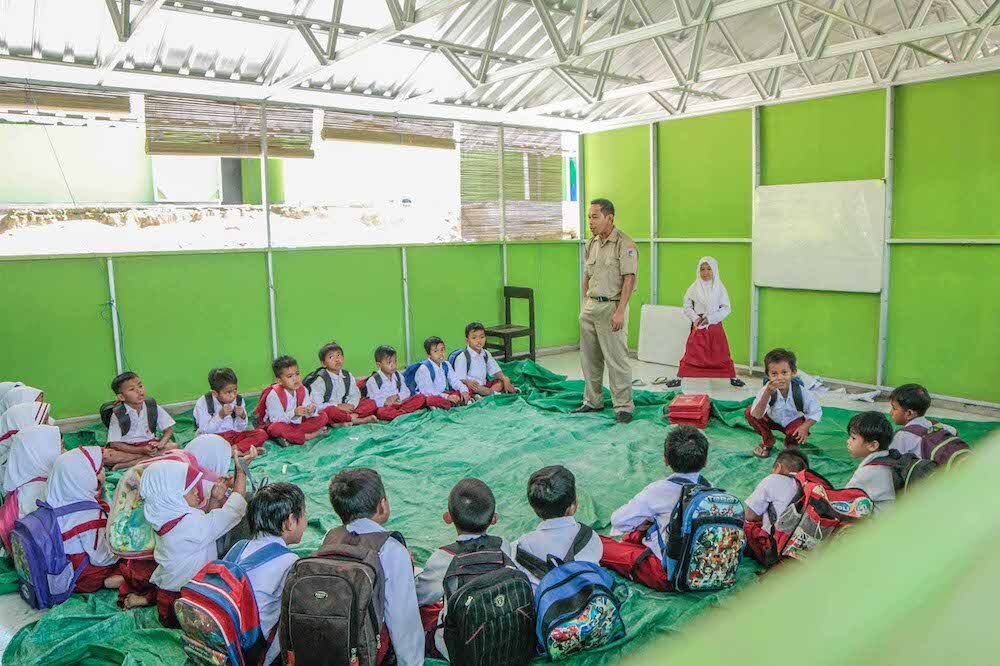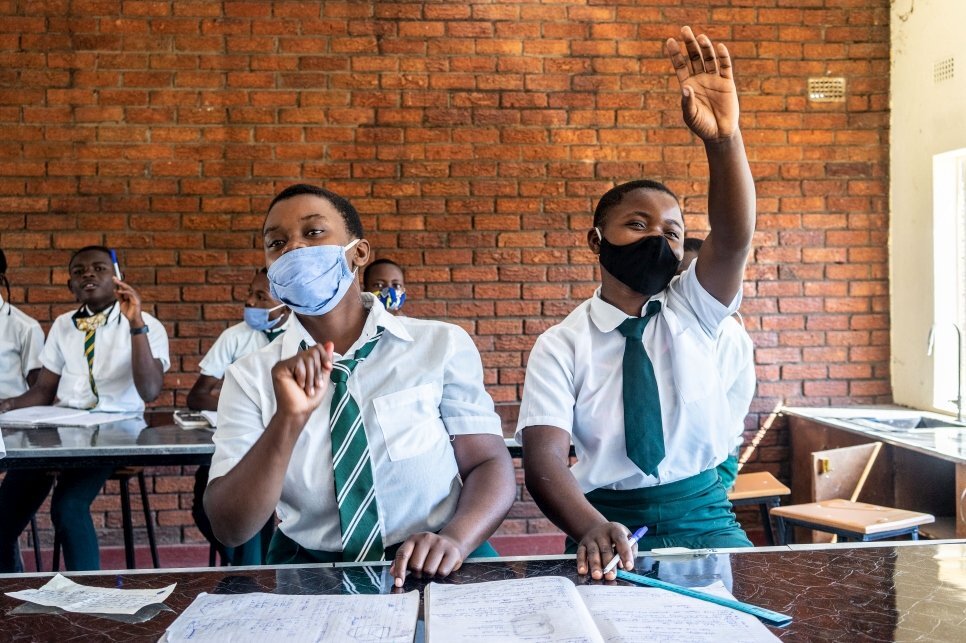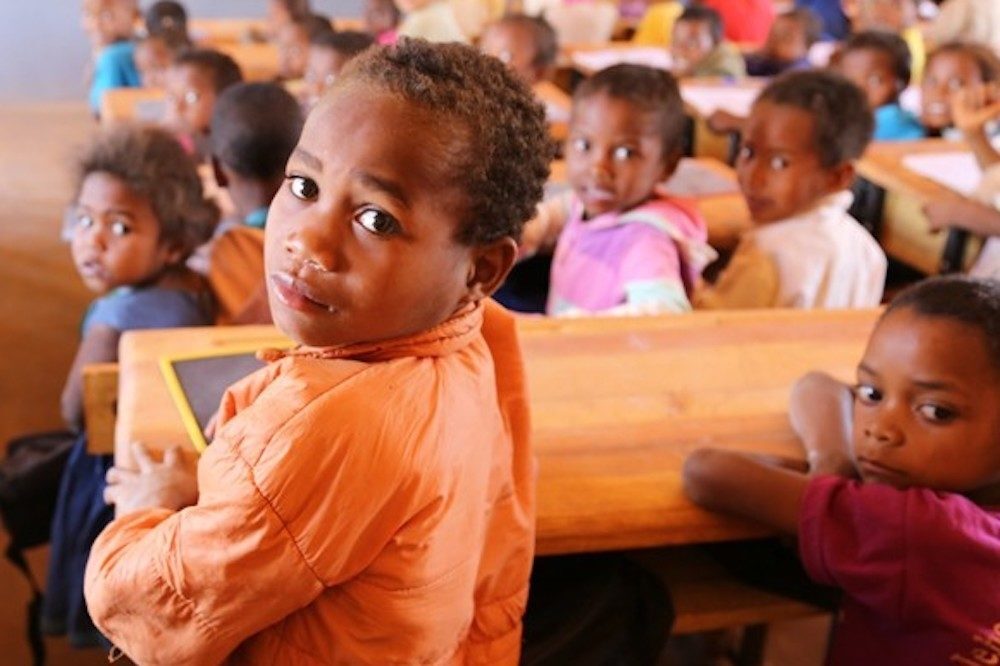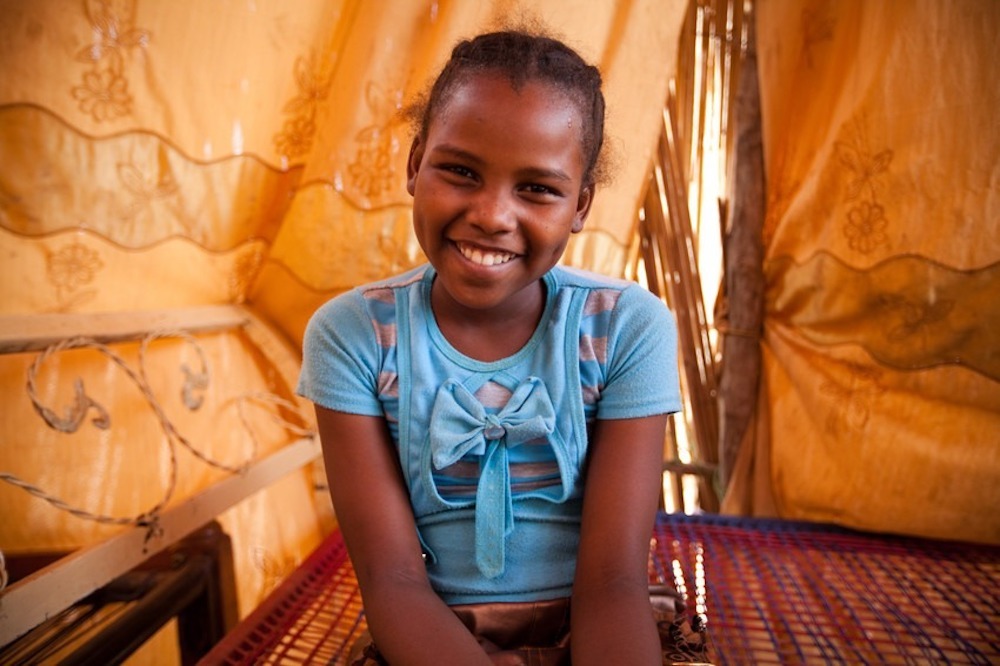Five things you need to know this week about global education

A school has been built with recycled bricks that can stand up to earthquakes - plus a warning about education systems at risk of collapse in almost 50 countries.
School made with recycled bricks to beat earthquakes
Asia’s first sustainable and earthquake-resistant school has been built on an Indonesian island three years after it was devastated by earthquakes that displaced more than 400,000 people.
The school in Taman Sari village on Lombok was built in under a week using “eco-blocks” made from recycled plastic mixed with wood. It is expected the building could last for more than a century.
It was constructed by Australian and Indonesian charities. The eco-blocks flex rather than snap during earthquakes and can tolerate more movement than bricks and mortar.
Student Pazila Aulia was excited to resume learning at the new school. She told ABC News: “I loved seeing the building go up, with its walls arranged like LEGO. It looks very neat – it’s beautiful.”
Education on brink of collapse in 48 countries

Levels of school and university enrolment remain critically low (UNHCR / Zinyange Auntony)
The education of hundreds of millions of children in 48 countries is at extreme or high risk of collapsing, according to Save the Children. This is on top of the 258 million children across the world who were already out of school before the pandemic.
New analysis found that factors – such as climate change, a lack of Covid-19 vaccines, displacement, attacks on schools and lack of digital connectivity – are jeopardising access to schooling. Save the Children said the Democratic Republic of Congo, Nigeria, Somalia, Afghanistan, South Sudan, Sudan, Mali and Libya have education systems that are at “extreme risk”. Syria and Yemen follow closely behind.
Meanwhile, UNHCR is calling for an international effort to guarantee secondary education for refugee children and youth. It comes as the the UN refugee agency launches its 2021 education report Staying The Course: The Challenges Facing Refugee Education.
With education disrupted by the pandemic, data showed the secondary school enrolment rate for refugees in 40 countries in 2019-2020 was only 34%.
Angelina Jolie tells children to fight for their rights
"So many children are in harm's way across the world and we're simply not doing enough. These are their rights." – Angelina Jolie on her new book, “Know Your Rights and Claim Them”https://t.co/CgljsdeAiP
— Amnesty International USA (@amnestyusa) September 6, 2021
Film star Angelina Jolie says she hopes to empower children around the world with the tools to “fight back” for their rights by writing a book with Amnesty International.
Know Your Rights and Claim Them – written with human rights lawyer Geraldine Van Bueren, one of the original drafters of the 1989 UN Convention on the Rights of the Child – aims to equip young people with the knowledge to safely challenge injustices.
Jolie, special envoy for the UN refugee agency UNHCR, said she was surprised to learn her own country, the United States, has not ratified the convention.
She added: “That infuriated me and made me start to question what does that mean? So for each country, what is this idea of, you have the right to an education … but then why is it so many children are out of school? Why is it the girls in Afghanistan are being harmed if they go?”
Two organisations, one big heart

The organisations will work together to reach children and youth in some of the most challenging crisis settings with safe, inclusive quality education (Education Cannot Wait)
Two organisations have joined forces to reach children and youth in some of the most challenging humanitarian crises with safe, inclusive quality education.
Education Cannot Wait – the global fund for education in emergencies – is partnering with Learning by Heart, a platform which provides online classes in a range of subjects, run by volunteer tutors in exchange for donations. It will donate half of its proceeds to further ECW’s mission.
Learning by Heart founder Naomi Green said: “We chose ECW because its mission and values deeply resonate with our own and our volunteer tutors and management team collectively chose them as a partner organisation.”
ECW Director Yasmine Sherif said: “Learning By Heart’s model of providing learning opportunities at a local level to benefit education at a global level is inspiring.” ECW’s investments are supporting quality education for more than 4.6 million children and youth.
Building hope for refugee girls in Sudan

Many girls in Sudan are enjoying education with the help of Islamic Relief (Islamic Relief)
Islamic Relief has helped to deliver quality education to almost 6,000 refugee children in Sudan, where families fled from conflict and economic crises in neighbouring South Sudan.
The project in West Korfofan involves creating new schools and safe learning spaces, as well as providing children with the education equipment they need to flourish.
Islamic Relief built a girls’ school in ElKharasana Refugee Camp, which is home more than 12,000 South Sudanese refugees. Before its construction, 2,000 boys and girls were studying in one very overcrowded school.
“I was very happy when I joined the school, where I can learn properly,” said Sharkous, a 17-year pupil who fled to Sudan in 2010. “I am 17 and might be too old to be studying in a primary school but education never causes embarrassment. It is not important how old you are – what is important is that you get educated.”